Car Wraps - Everything You Need To Know
Posted on August 18, 2022
Wrapping your car can provide a quick and often much cheaper alternative to a new paint job allowing you to totally change your vehicle's look within a couple of days. What's more, custom car wraps can serve as excellent marketing tools for businesses, turning your personal or work vehicle into a rolling billboard to get the word out about your company. This guide will tell you everything you need to know about wrapping your car, the materials used and their positive effects on the vehicle beneath.
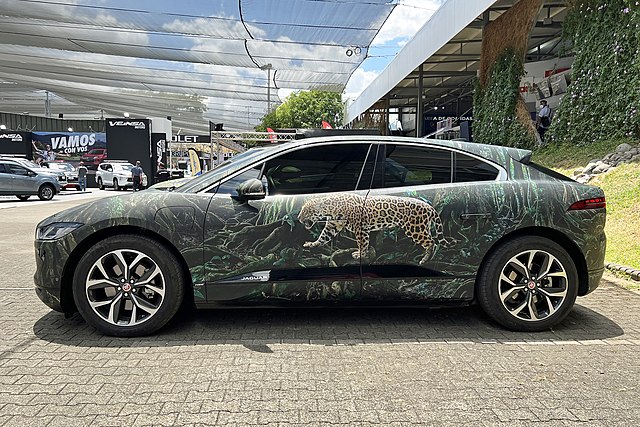 Mariordo (Mario Roberto Durán Ortiz), Jaguar I-Pace CRI 03 2022 4875, CC BY-SA 4.0
Mariordo (Mario Roberto Durán Ortiz), Jaguar I-Pace CRI 03 2022 4875, CC BY-SA 4.0
History
Vinyl has been used to customise cars since the 1950s with lettering, logos and more applied to work trucks to advertise businesses. It wasn't until the mid-1990s that full vehicle wraps came into their own. It all began with the German government mandating that the country's taxi cabs had to be painted beige, or "light ivory" to give the shade its official name. This meant that taxi companies buying used cars had to go through costly resprays in order to toe the line. Full-car vinyl vehicle wraps emerged in the 1990s as a way to keep everything nice and legal without the taxi firm having to shell out for a full paint job. Wraps have come a long way in the years since with a huge range of colours and patterns available plus the ability for printers to design any livery imaginable to advertise a business or make a car stand out from the crowd.
Advantages of a Wrap
As mentioned above, one of the major advantages of wrapping a car over painting it is the lower price for similar results. Paint requires at the minimum a lot of prep work, a dedicated booth, specialty equipment and the labour fees that come with such skilled work. Want to add some custom designs to the paint? That'll require another extremely skilled and pricey painter. Painting done to show-car levels requires taking the car apart to make sure every inch is perfect. Wrapping on the other hand, while still requiring skilled labour, can be done in a couple of days on average and requires less specialty equipment. If you're feeling really brave you can even attempt to wrap your car by yourself, though we think this takes more than the "clean workspace and patience" that online guides profess. Getting tangled up in yards of adhesive-backed vinyl sheeting is not our idea of a good time.
Another advantage of wrapping a car is the fact that it's so easily reversible if you decide you want to go back to the previous look. It's as simple as starting at the edges of the wrap and using a heat gun to warm the adhesive so you can peel it away from the bodywork before using a sticker removing compound or similar to get rid of any residual sticky stuff. Underneath you'll find paint that's in better condition than a car that left the factory on the same day thanks to the UV-blocking qualities of the wrap.
Changing Colour
Vinyl wraps have changed the landscape for custom cars and made things possible that simply weren't with paint. It's not unusual for custom wraps shops to offer more than 200 different colours, finishes and materials like carbon fiber and chrome to take your vehicle's look to the next level and make it truly unique. Some people have used wraps to replicate rare colours that are not readily available for certain make/models or are very pricy. The cost of these wraps can vary based on vehicle type, chosen finish and complexity of wrap design with larger vehicles requiring more time and materials while more finicky finishes like chrome raise the cost of installation. Professional wrap shops tend to favour high quality vinyl made by 3M or Avery Dennison. High quality wraps professionally installed can last five to ten years before needing replacement. Another option from shops like this is paint protection film which is a clear polyurethane film applied over a car's paint to protect it from chips, scratches, and road dirt.
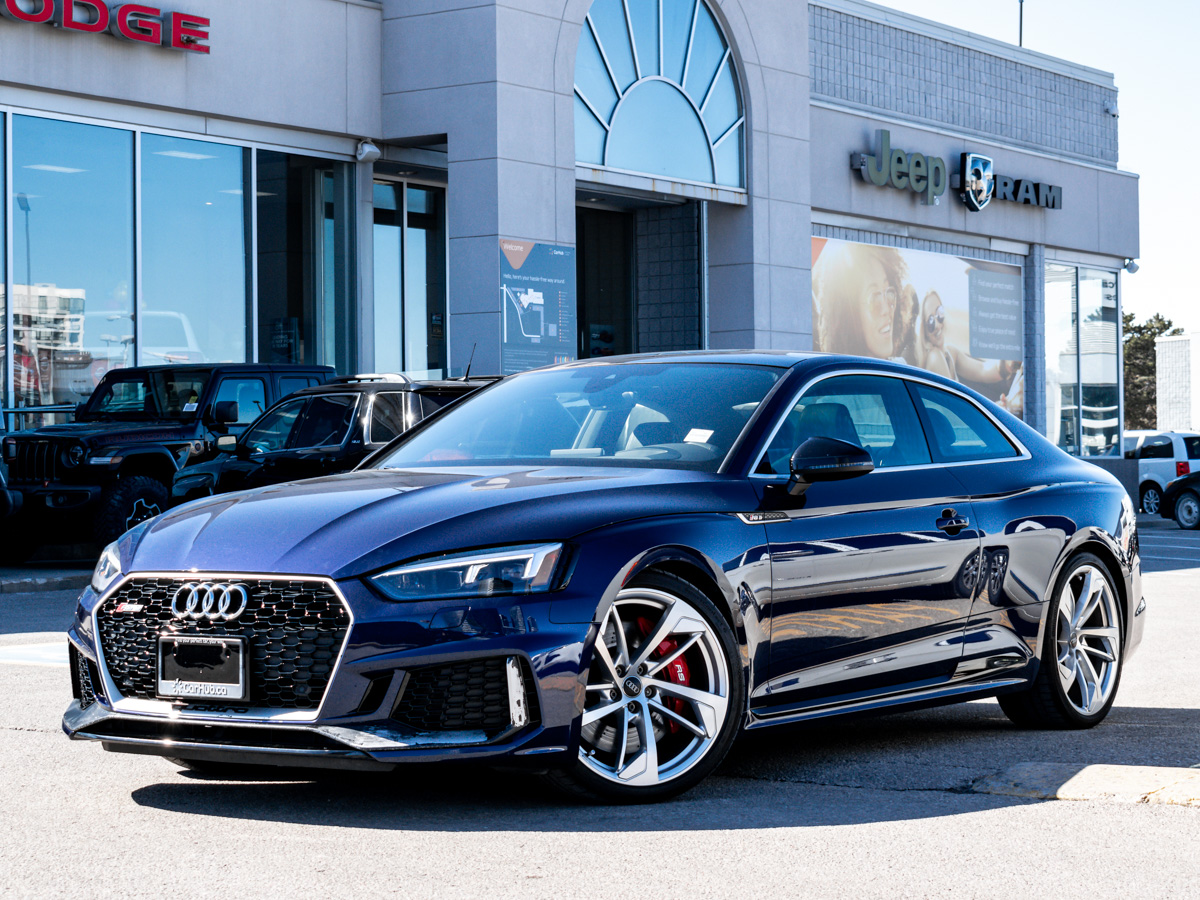 Without the wrap
Without the wrap
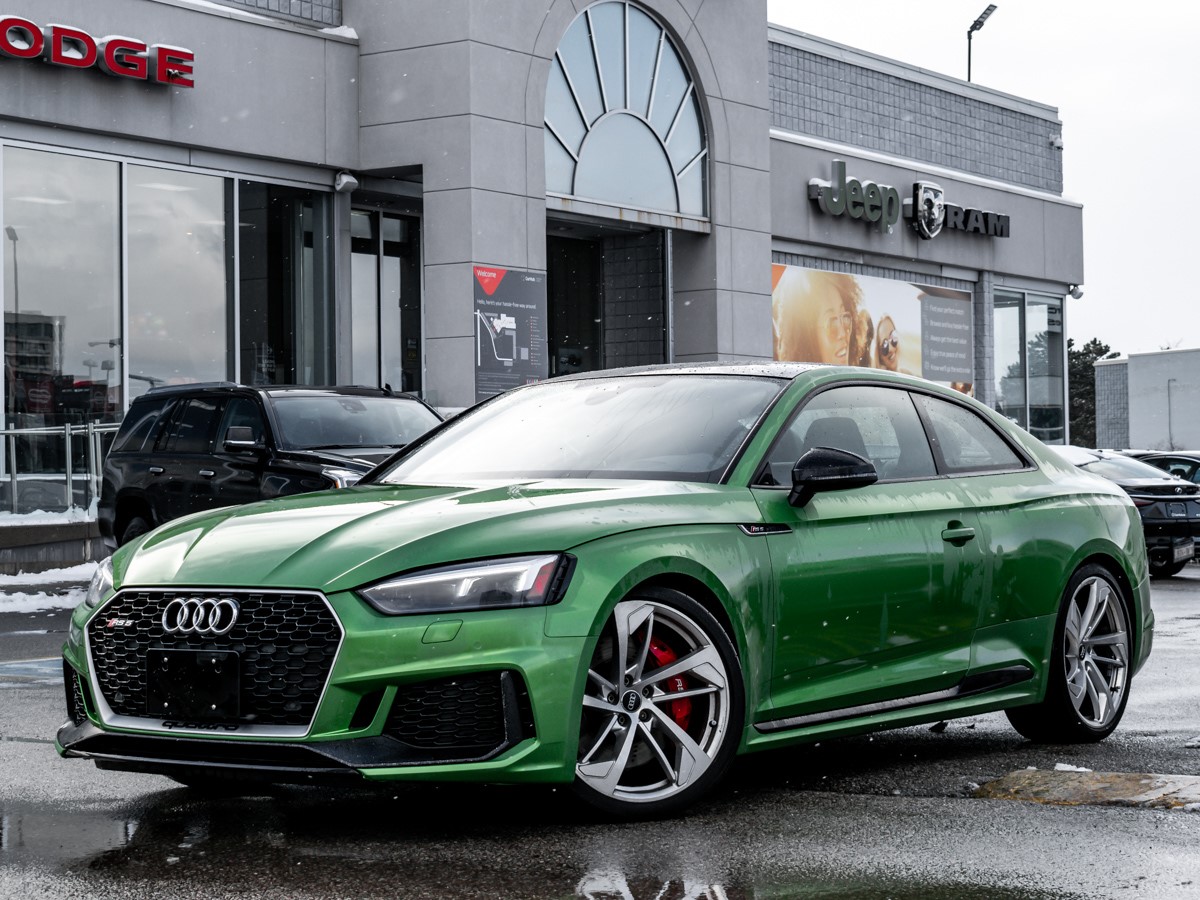 With the wrap
With the wrap
Commercial Advertising
Vinyl car wrap provides business owners with the ability to advertise their services wherever they go thanks to the versatility afforded by printing directly onto the wrap. While it may be tempting to go wild with an eye-catching design it's best to keep things simple for a commercial car wrap. Potential customers may only see the vehicle for a moment as it passes and you want to make sure they get the full marketing message in that time. Be sure to make the most of every panel of your vehicle to maximise impact and use high-quality images so the design doesn't look stretched or grainy. Be sure to include the name and contact details of your business and if possible park the vehicle indoors to protect your investment from the Sun's UV rays which can fade the design over time.

Tobias ToMar Maier, CC BY-SA 3.0 via Wikimedia Commons
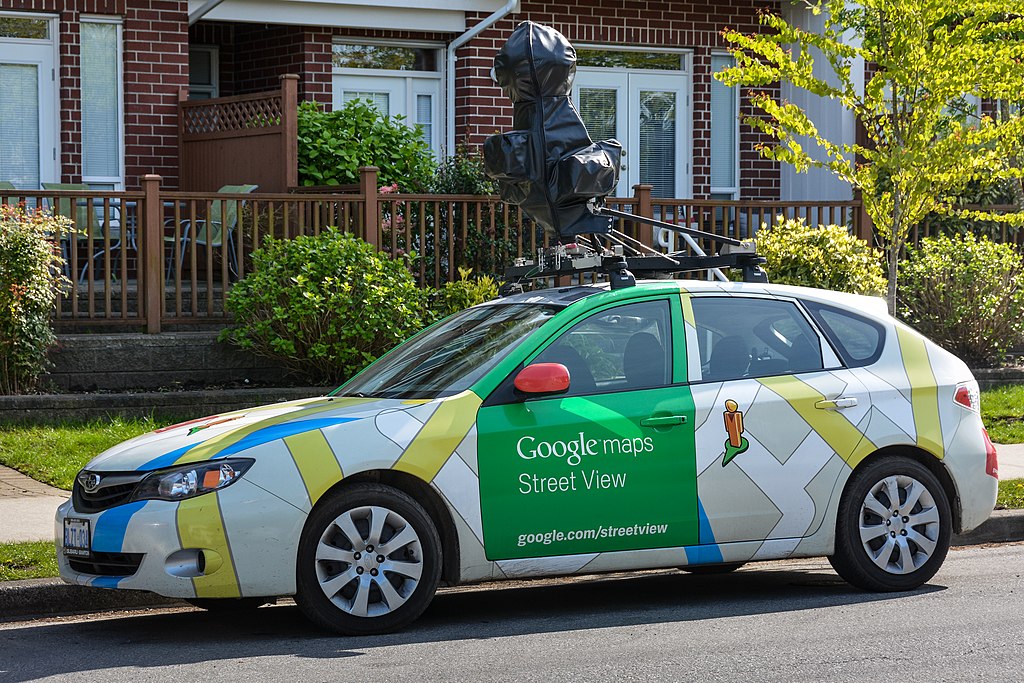 Resting with camera wrapped... Google Maps car used for collecting data for Streetview app in Steveston, BC Canada.Gordon Leggett / Wikimedia Commons
Resting with camera wrapped... Google Maps car used for collecting data for Streetview app in Steveston, BC Canada.Gordon Leggett / Wikimedia Commons
Questions
What does it cost to wrap a car?
Having a car wrapped in vinyl film at a professional shop isn't exactly cheap but it's less costly than a full-body paint job. Rates vary based on vehicle size with a wrap for a coupe or small sedan coming in at around $2500 while prices for large SUVs can reach $3500. Custom designs and exotic finishes like chrome and carbon fiber can further raise these prices.
How long do car wraps last?
The vinyl firm used for car wraps is strong and durable giving it the ability to stand up to rain, snow and anything else the environment can throw at it. A properly installed wrap can last anywhere from five to seven years and as much as ten if it's looked after well and parked away from harmful UV light.
Is it worth it to wrap your car?
This depends on what you want to achieve. If you're looking to completely change the look of your car fairly quickly and relatively inexpensively then wraps are the way to go. Similarly they can serve as an excellent mobile advertising solution for your business. If you're hoping to build a show-quality custom car or you want to change the colour of your ride forever then paint may be the best option for your needs.
Are wraps bad for your car?
Not at all, in fact a properly installed wrap will serve to protect the paint underneath from harmful UV rays which can cause colour fading. Removing the wrap is as simple as peeling it away from the body and using a heat gun to encourage the adhesive to release. Use a sticker remover solution to get rid of any adhesive that gets left behind and presto, your car is returned to its former colour.
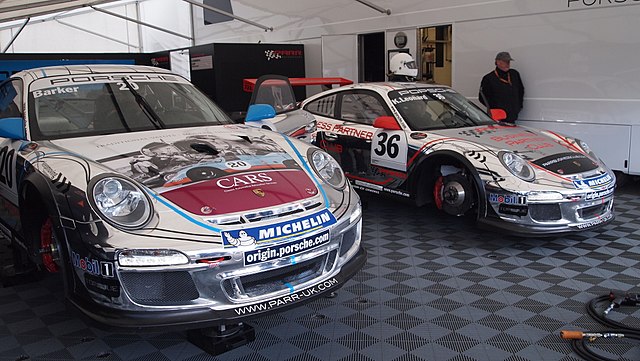 CC BY 2.0, via Wikimedia Commons
CC BY 2.0, via Wikimedia Commons
Can a wrapped car go through a carwash?
Brush car washes should be avoided in wrapped cars as they can damage the vinyl and pull at its edges. Touchless car washes are better but ideally vinyl wrapped cars should be cleaned gently by hand as you would wash your pride and joy in your driveway. Pressure washers should be used at their lowest pressure setting and it's best to hand dry when you're done.
Can you wrap a car yourself?
Yes, if you dare. The required tools are fairly inexpensive and you can save a lot of money on labour fees by wrapping your car yourself. Vinyl wraps are essentially massive stickers so if you can get the placement right then you're golden. That said, spending a few hundred dollars on materials and hours of your time only to end up with a less-than-perfect result sounds pretty heartbreaking to us. You can certainly wrap your car yourself, but know what you're getting yourself into.
Which is the best wrap for cars?
Many wrap shops use 3M's 2080 series vinyl or Avery Dennison's Supreme Wrapping Film because they provide superior adhesion and durability compared to cheaper products. The 2080 series comes with a 7-year warranty while the Avery version comes with a 5-year guarantee.
Will a wrap hide any dings or dents?
Vinyl wraps work best with a clean, smooth surface to stick to. While a wrap may hide small scratches and paint imperfections it won't bond well with dents, gouges, rust, or chipped and flaking paint. For perfect wrap installation the car's body should be as free of damage as possible.
Vinyl car wraps are an excellent and relatively inexpensive way to completely change your car's look as well as bringing new revenue to your business through advertising like never before. We hope this guide has given you all the information you need to decide if a wrap is right for you and wish you the best of luck with your customization and business goals.
-Author Bio-
James Walker is a car nut and motoring writer with a love of all cars fast and slow. He drives a lot, and has been writing about cars for over five years.

